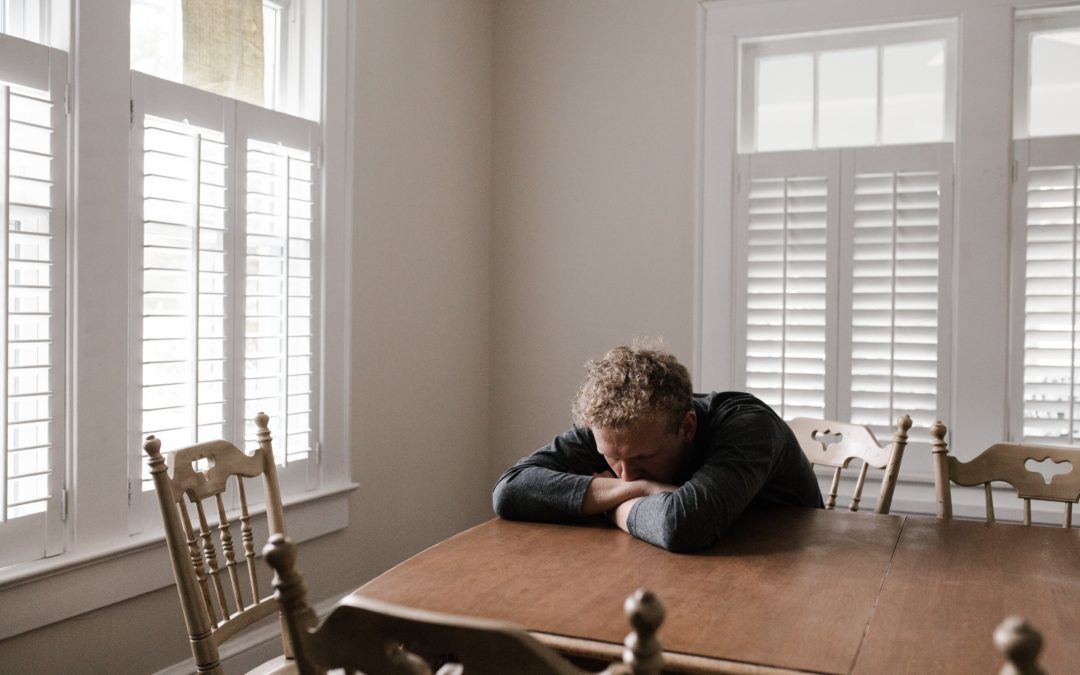Last Updated on June 28, 2023 by Steven Root
What You’ll Learn In This Post
Whilst I’ve been symptom & drug free for many years now, I’ve stopped many flares of my own over the course of the last 15 years.
I’ve also shown hundreds of clients how to stop theirs and keep them away.
That being said, this is not a one size fits all approach.
There are dependencies, such as your
- Symptom severity
- How long you’ve been inflamed
- Location of inflammation
- Allergies & intolerances to certain foods
- Dietary preferences
- Cultural & religious obligations
- Prior experience with certain foods & diets
So whilst what follows is a list of strategies on how to stop an ulcerative colitis flare, you’ll have to decide for yourself which is the most appropriate.
If you’d like to remove the guesswork, feel free to contact me for a customized plan to stop your flare and stay healthy.
Note that this post will not discuss medications, since I’m on the holistic side of the fence.
But that doesn’t mean that you need to be on the holistic side of the fence.
If you would like to use a drug to get out out of a nasty health situation, then do that.
You’re the CEO of your own health.
Not me, and not your doctor either, to be honest.
Also… this is not medical advice and advice given by me should not take the place of advice from licensed medical professionals 🙂
And finally, beware anyone who solely recommends supplements to stop your ulcerative colitis (or Crohn’s) flare up.
Whilst, I do think that some can be handy..
And I’ll cover some of them further down this page..
Without the other changes that I suggest making, you will almost certainly end up back in a flare.
This is because your flare up has been triggered by something, and you need to remove it.
This is a very important concept:
IBD is not about what you add, it’s about what you remove.
That being said, let’s begin.
Number 1: Follow An Elimination Diet & Test Each New Food
This should be where you start.
The food list should be small initially.
It should comprise no more than 3-5 foods and should also be very minimal on the supplement front.
Yes, 3-5 foods is very limited, but that’s the whole point.
This is so that your immune system does not have many potential triggers to react to.
And so that as you gradually introduce foods, you can work out what your triggers are.
Pick nutrient dense foods and/or add a multi-vitamin in the beginning to avoid any nutrient deficiencies.
There are many types of elimination diet.
Some of the main ones that people will use to stop an ulcerative colitis flare up are:
- A carnivore diet
- An elemental diet (see the elemental diet I used here)
- A specific carbohydrate diet
- An autoimmune paleo diet
- A vegan diet
I’ve used all of these with my clients with good success.
There are others, of course, but these are the main ones.
As far as which specific foods to consume, stating the obvious, I cannot be more specific without knowing the dependences listed in the section above.
That being said, for the testing:
1. Consume 1 x serving of the new food you are testing once per day for 4 days.
Only test 1 new food at a time.
Be sensible with serving sizes – if you are unclear on what a ‘sensible’ serving size is, eat 0.5-0.75 cups of the specific food.
You can increase the serving size over time.
The new food can be consumed with other foods that you’ve already tested and marked as safe.
Which foods to test and in which order is dependent on your
- dietary preferences
- cultural & religious obligations
- allergies and intolerances
- ability to handle certain sugars, starches, and fiber
Obvious things to avoid are
- dairy
- gluten containing grains and pseudo grains
- processed foods
- high sugar / starch / fiber foods (in the beginning at least)
For help with building your food list out, feel free to contact me.
2. Observe for symptoms.
Symptoms (outside of the obvious ulcerative colitis & Crohn’s disease symptoms like bleeding) can include but are not limited to
- stomach pain / discomfort
- gas
- belching
- heartburn & indigestion
- diarrhea
- constipation
- skin rashes / itching
- difficulty breathing
- and others.
3. If you do not experience any symptoms, then you can continue eating the food.
If you do, then the food should be discontinued for now.
4. If a food does give you symptoms, this does not mean you will never be able to eat it.
If there is a food that you would very much like to include, I would recommend retesting from time to time – perhaps every 3 months or so.
Your ability to handle certain foods will change over time as your gut barrier integrity is restored and your bacteria (that produce some of the enzymes responsible for digestion) regrow.
Number 2 – Bring Your Stress Hormones Down
Elevated stress hormones (namely cortisol and adrenaline) do 2 important things:
- “Scientists investigating why wounds heal more slowly on patients who are stressed have found that psychological stress can increase the levels of some hormones in the blood. These hormones can slow the delivery of certain compounds — cytokines — to the site of the injury to start the healing process.”
See here for the full article.
Simplistically, this means that if you have ulcers / damage / a wound in your intestines, it’s going to take longer to heal if you’re stressed.
Note that this applies largely to the earlier stages of stress.
- And secondly, in the latter stages of stress, as with chronic stress, there is an increase in pro-inflammatory cytokine production and an increase in inflammation.
See full article here.
This is what us IBD’ers are most often affected by.
We need to avoid chronic stress.
Ways to bring your stress hormones down are plentiful, and include:
- Meditation
- Gratitude practices
- Prayer
- Breathwork
- Yoga
- Getting outdoors
- Running a bath
- Etc.
These are commonly called self care practices and should form part of every person’s routine who’s been diagnosed with ulcerative colitis or Crohn’s disease, whether you are trying to stop a flare of not.
If your stress hormones are chronically elevated as in the case of chronic stress, you’re going to find it very difficult to heal and stay healthy.
In short, the impact of both early and late stage stress is bad news for our healing.
So do something about it.
Number 3 – Do The Emotional Work
I posted recently on this on instagram.
Follow me here to see a bunch of stuff I don’t post anywhere else.
Whilst the self care practices above can really help and set you body up for healing, there is often no change in consciousness.
They’re ultimately bandaids, because you will likely still get triggered / stressed by the same external circumstances even after your meditation, breathwork etc.
In order for us to affect real, long-lasting change, we need to ‘work out’ how to become less triggered by external events.
The top resources I’ve found for this are-
- Letting Go – David Hawkins
- Untethered Soul – Michael Singer
- Psychodynamic therapy
By letting negative emotions come up, run their course, and leave you, your consciousness changes.
The more fear you let go, the less fear lives inside you, and the less fear latches onto external events to express itself.
Therefore, the less stressed you feel on a daily basis.
And, more importantly, the less inflamed you are.
This is true of all negative emotions.
Practice Letting Go, repeatedly.
I’ve worked hard on this and am now reaping the benefits, as are many of my clients.
Number 4 – Use Supplements If Necessary
As per the introduction earlier, supplements should not be your only strategy.
You should work out what is triggering you, and remove it.
However, some of the following supplements can be useful.
I’ve included links in each section to the specific supplements that I generally recommend.
Note – the doses I’ve recommended are for these specific supplements only.
- Vitamin D – low levels of Vitamin D will pose issues for achieving a well-functioning immune system.
Recommended dose: 5,000-10,000 IU’s daily, unless your blood work has shown your Vitamin D levels to be adequate.
- Bentonite Clay – can help slow down intestinal motility, and bind toxins and bacteria to help you have a well formed poop.
Recommended dose: over the course of 1 week, work up to 2 tbsp daily, taken in 1 tbsp serving sizes in 12oz of water.
Take at separate times of the day away from meals.
Do not take 2 tbsp daily for more than 2 weeks.
- Probiotics / Fermented Foods – can help crowd out ‘bad’ bacteria and other pathogens and help to restore microbial balance in your gut.
Note – for people with inflamed guts, I’ve occasionally seen probiotics and fermented foods being troublesome.
This is likely due either to the acidity or to an intense Herxheimer (die-off) reaction, which is why I recommend starting slow.
Probiotics recommended dose: up to 8 capsules daily, taken with or without food.
Start with 2 capsules and work your way up gradually to 8 capsules over the course of several weeks or until your symptoms improve.
Fermented foods (sauerkraut / kimchi / kefir) recommended dose: up to 2 cups daily, with or slightly before meals.
Start with 2 tbsp and work your way up gradually over the course of a couple of weeks.
Make sure there is no added sugar in your fermented foods, and always buy fermented foods from the refrigerated section of supermarkets if you are not making them yourself.
- Psyllium Husk – can help to soothe your digestive tract and stop foods from tearing you up.
Recommended dose: up to 3 tbsp daily in enough water to avoid excessive thickening.
Start with 1 tsp and work up in 1 tsp quantities every few days until your symptoms improve.
Do not take more than 1 tbsp in a single dose.
Note above the difference between ‘tsp’ and ‘tbsp’.
- Comfrey Enema (use code stevenroot at checkout for 10% off) – an excellent wound healer and can lubricate your colon to stop stool from tearing you up as it passes through.
Recommended dose – take as instructed or 1 tsp of eacf of comfrey, marshmallow root, and slippery elm in 1-2 cups of distilled water at room temperature or slightly above.
Slippery elm and marshmallow root can also be taken orally to help soothe the entire digestive tract.
Do your own research on taking comfrey internally and make sure you’re comfortable using it.
I’ve used it and so have many of my clients to great effect.
- Antimicrobials – can be useful in fixing a microbial imbalance which is very common in people with an ulcerative colitis or Crohn’s disease diagnosis.
Antimicrobials are over used in my opinion when it comes to gut health and often times dietary changes are sufficient.
However, if you know your gut flora to be imbalanced, either through SIBO breath test, a stool test (I question the efficacy of both of these), or through symptoms, you can consider the following supplements.
Please note, all of these antimicrobials can cause digestive upset including diarrhea, stomach discomfort, and gas.
Speak to your healthcare provider or work with someone who knows what they’re doing if you want to go down this route.
Oregano oil: 4 drops (1 serving) in a glass of water on an empty stomach up to 3x per day. Start with 1 serving and work your way up by 1 serving every 4 days. Do not take for longer than 3 weeks.
Lauricidin – Follow manufacturer instructions.
Berberine – Follow manufacturer instructions
Garlic extract – Follow manufacturer instructions
In severe cases, all 4 are often used together
In less severe cases, either oregano oil by itself or oregano + lauricidin can be sufficient.
There are of course other supplements you will hear about when searching out how to stop an ulcerative flare, but those listed above are the ones you should look to first when flaring acutely.
Remember, this is NOT medical advice 🙂
Other supplements you may want to look into, which in my opinion would more commonly be used as part of a long term strategy to improve immune system health and reduce inflammation, would be:
- Omega 3’s (fish oil, vegan option)
- Quercetin
- Bone broth / collagen
In Closing
There’s a lot of clickbait out there, and there are a lot of people who want your money.
But I can tell you from a wealth of personal and client experience, that you should start with the above before you consider other therapies.
Only when you are not met with success by thorough application of the above methods should you look further afield.
Again, this is not medical advice.
And again, if you wish to use a drug to stop your ulcerative colitis flare, you should do that.
You’re the boss.
Contact me here if you want help.






Thank you very much for this valuable information, the world is a beautiful place because of people like you
Aww thank you 🙂